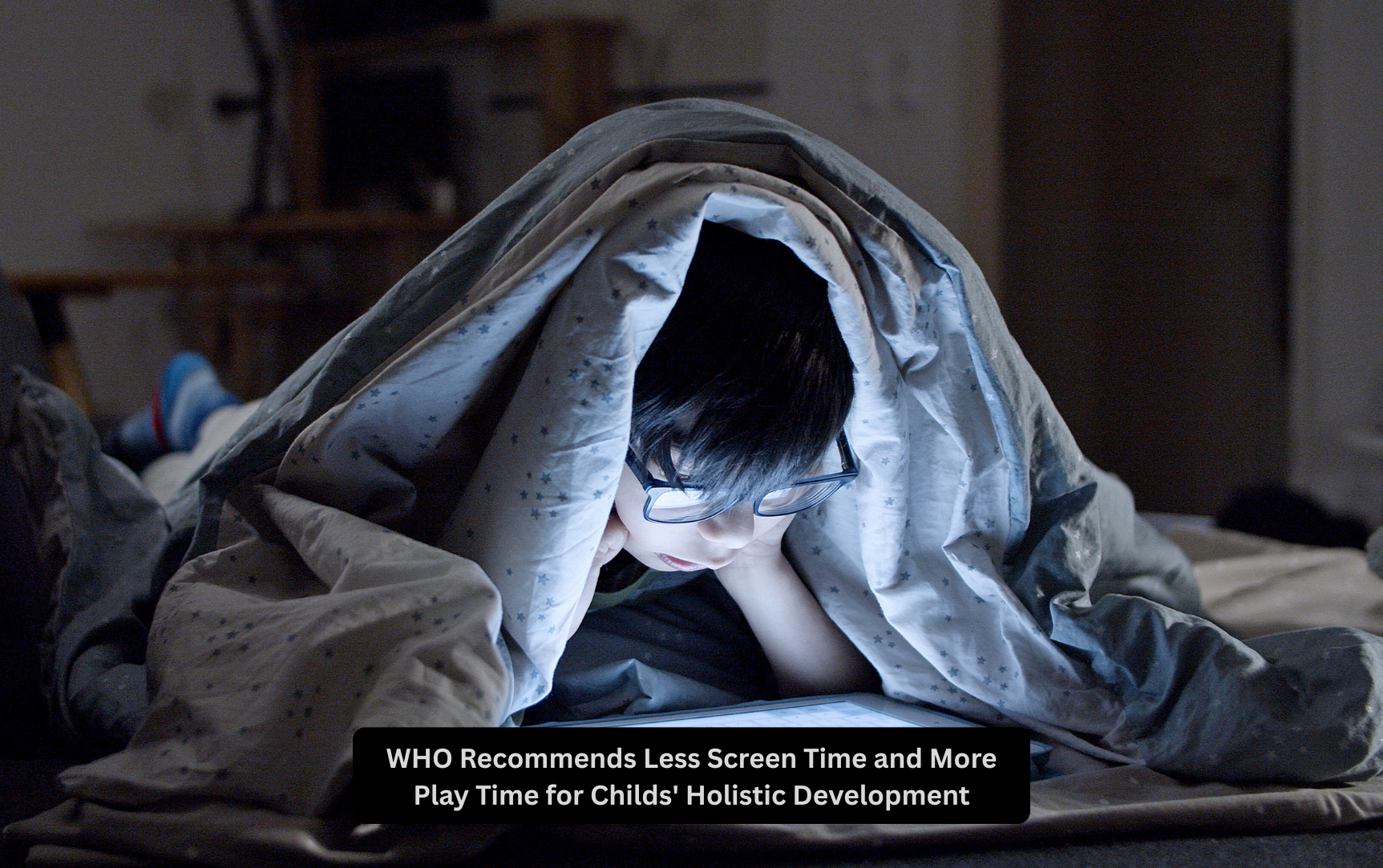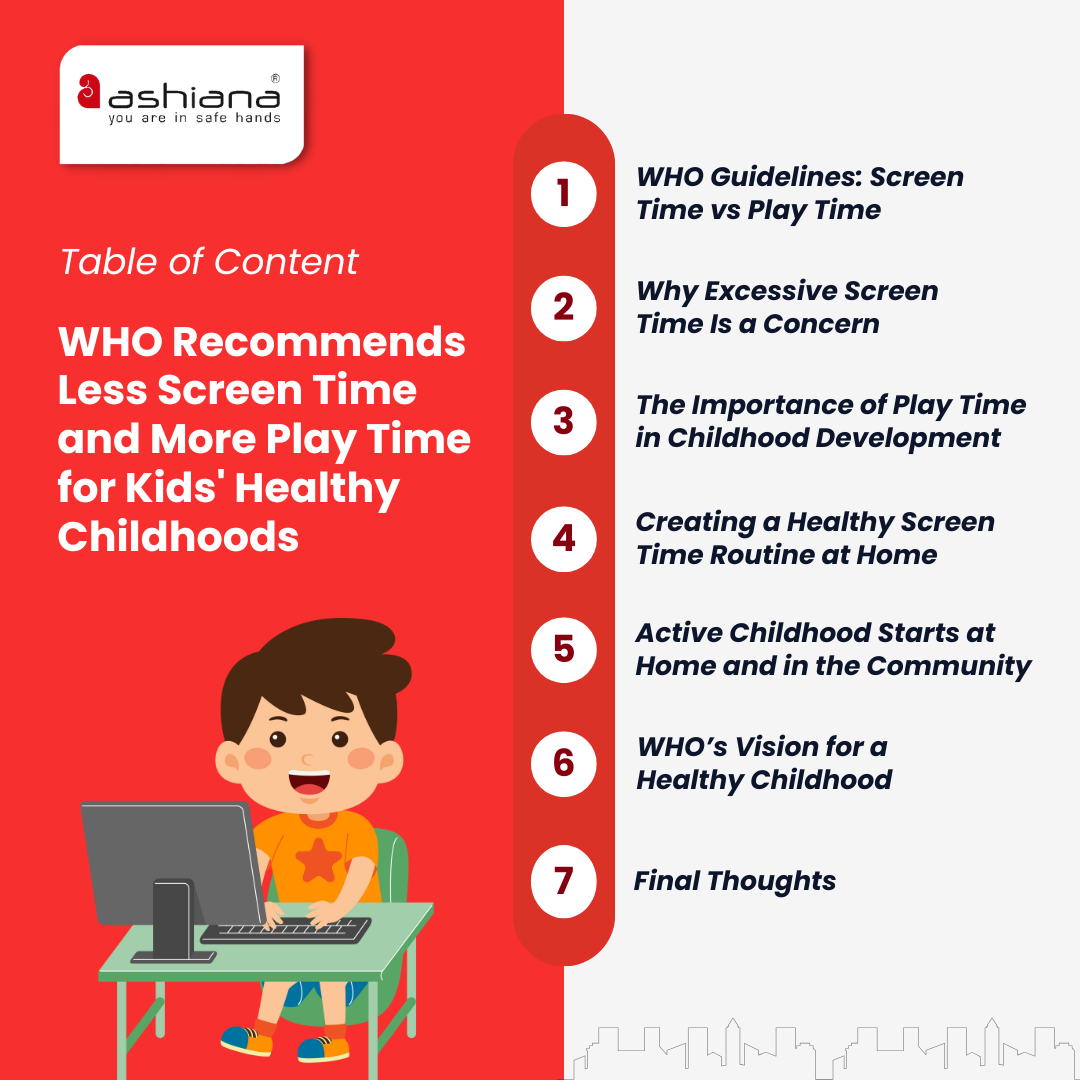

 Residential developments like Ashiana Housing’s Kid-Centric Homes are a great example of how communities can support healthy habits. With dedicated play areas, activity-based programs, and regular events, these communities help children grow up in a balanced, nurturing environment, where play time is always a priority over screen time.
Residential developments like Ashiana Housing’s Kid-Centric Homes are a great example of how communities can support healthy habits. With dedicated play areas, activity-based programs, and regular events, these communities help children grow up in a balanced, nurturing environment, where play time is always a priority over screen time.
The WHO advises no screen time for children under 1 year and no more than one hour per day for children aged 2 to 4 years.
Excessive screen time can disrupt sleep, delay language development, and increase the risk of obesity by promoting sedentary behavior.
Set screen time limits, encourage fun offline activities like drawing or cycling, and create screen-free zones in your home to support active, healthy childhoods.
Ashiana, Ashiana Housing build homes. Homes surrounded by vast green spaces and fresh breeze. Homes cocooned in secured gated complexes. Homes where futures are forged and there are opportunities to grow. And Homes in environments brimming with healthy activity, trust and respect. At heart, we build communities with care.
Other posts by Ashiana
Join 1000+ of fellow readers. Get expert real estate knowledge straight to your inbox absolutely free. Just enter your email address below.